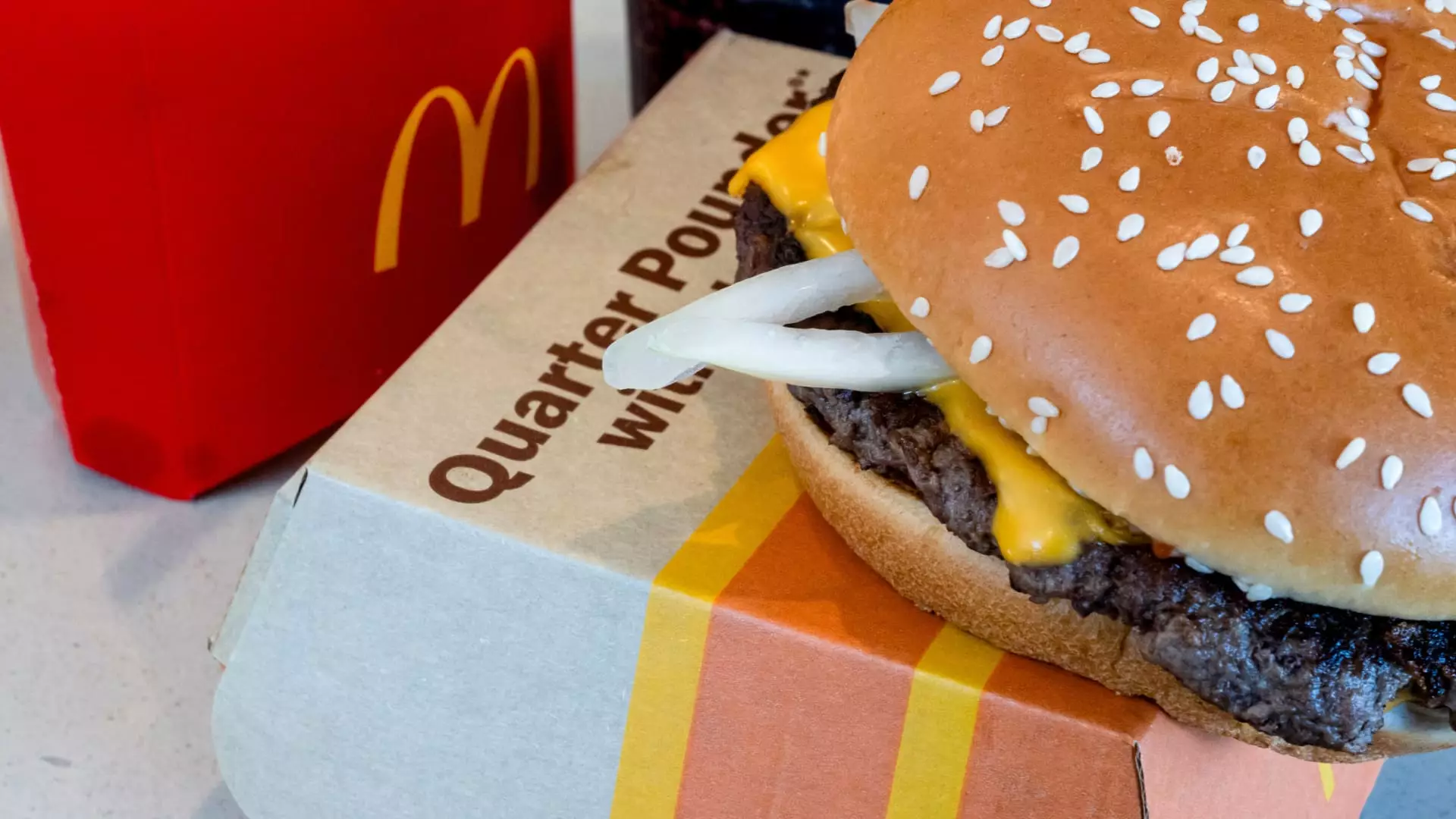A troublesome E. coli outbreak has surfaced, intricately linked to McDonald’s famed Quarter Pounders, igniting public concern as 75 cases have emerged across 13 states, according to the latest reports from the Centers for Disease Control and Prevention (CDC). This alarming situation has resulted in 22 hospitalizations and a tragic fatality involving an elderly individual in Colorado. The CDC’s surveillance indicates that out of the 61 patients from whom detailed information has been gathered, a significant 22 required hospitalization, and two developed a severe condition known as hemolytic uremic syndrome, which poses a severe risk of kidney failure.
The outbreak primarily affects individuals aged between 13 and 88, unveiling a pattern that seems to signify that not only is the outbreak ongoing, but the number of actual cases is likely greater than reported. The CDC speculates that many infected individuals do not seek medical attention and may recover without any diagnosis, which complicates the tracking of such outbreaks considerably.
The repercussions of this health crisis have already manifested in the financial sphere, with McDonald’s stock plummeting by 2% in response to this latest update. Observably, the share value has decreased 6% since the initial confirmation of the outbreak, which had asserted 49 cases and one death across 10 states. This fluctuation signifies a heightened investor anxiety towards the potential long-term implications on the brand’s reputation and financial performance.
As the cornerstone of McDonald’s menu offerings, the Quarter Pounder burgeons substantial revenue. Yet, this outbreak puts the future of this product—and, by extension, customer trust—at severe risk. McDonald’s, currently in a vulnerable position with flat sales growth in the United States, faces an uphill battle to maintain its market stance amidst such alarming news.
Authorities are taking a meticulous approach, exploring the slivered onions central to the Quarter Pounder as potential contaminants. In a proactive maneuver, McDonald’s instructed its restaurants within affected regions to cease using these onions, halting their distribution altogether. The CDC has pinpointed California-based Taylor Farms as the supplier for those implicated slivered onions. This company has since issued a recall for four onion products due to concerns over possible E. coli contamination, thereby heightening scrutiny on the entire supply chain and agricultural integrity.
In a ripple effect, other food chains—such as Burger King, KFC, Pizza Hut, and Taco Bell—have preemptively removed onions from certain locations, heightening the public health response. This awareness underscores a collective acknowledgement within the fast-food industry regarding the cascading effects of foodborne illnesses.
Federal agencies are not confining their investigation to just the onions, as they are also scrutinizing the beef patties used in the Quarter Pounders. While McDonald’s has actively removed these hamburgers in the affected areas, the incident elicits a significant question about the regulatory framework governing food safety within fast-food establishments.
This outbreak appears to coincide with waning consumer traffic at fast-food chains, especially in the face of economic inflation and fluctuating consumer priorities. Many fast-food outlets are pivoting towards value meal strategies in a bid to reinvigorate interest from price-sensitive consumers. Analysts predict a modest growth of 0.5% in U.S. same-store sales growth for McDonald’s in the upcoming quarter, which underscores the pressure placed on the company to maintain customer loyalty amid troubling reports such as this outbreak.
In response to the situation, McDonald’s is attempting to convey a message of safety and reassurance to its clientele, emphasizing the efficacy of its existing food safety protocols. Industry experts suggest that, barring further escalation of the outbreak, the damage to McDonald’s brand may remain contained. The company’s recent handling of a similar incident involving Wendy’s illustrates that consumer memories can be short, especially if appropriate measures are enacted swiftly and transparently.
As McDonald’s approaches its third-quarter earnings call, stakeholders will be watching closely to see how the company contextualizes the outbreak’s impact on both current operations and future strategies. The ability of McDonald’s to navigate this turbulence could potentially redefine its operational resilience in the public eye going forward. Ultimately, trust in corporate ethics and safety standards will play a pivotal role in shaping customer responses moving forward in this competitive fast-food landscape.

